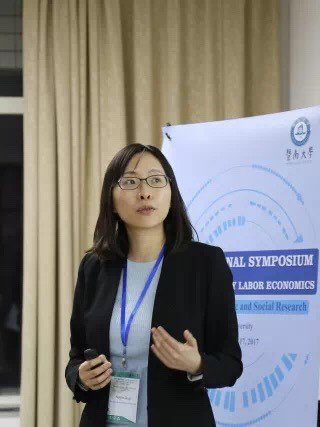
经济与社会研究院SEMINAR第154期
题目:Do elite colleges matter? Its implications for entrepreneurship decision and dynamics
主讲人:郭乃嘉,香港中文大学
时间:2019年5月13日,13:30-15:00
地点:暨南大学中惠楼106B室

主讲人简介:
Naijia Guo is an Assistant Professor in the Department of Economics at the Chinese University of Hong Kong. She got her PhD degree at the University of Pennsylvania in 2014. Her research interests are Labor Economics, Family Economics, Development Economics, and Health Economics.
Abstract:
This paper studies the effect of elite colleges on entrepreneurial decision and dynamics. We build a life-cycle model with dynamic decisions of education and career choices. It captures the stylized facts from the Panel Study of Income Dynamics (PSID) that elite college enrollment and entrepreneurship (owning an incorporated business) are positively correlated, but that between elite college enrollment and other self-employment (owning an unincorporated business) are not. Self-selection due to the difference in abilities and financial constraints are vital to understanding the education and subsequent career choices. Our structural estimation shows that elite colleges provide much more significant human capital gain than non-elite colleges for employees, entrepreneurs and other self-employed. Shutting down the option of elite colleges reduces the number of entrepreneurs, but has little impact on other self-employed. Providing subsidies to elite colleges is more efficient than giving grants to non-elite colleges in terms of increasing the number of entrepreneurs and their income, increasing entry into and duration of entrepreneurship, and improving welfare.